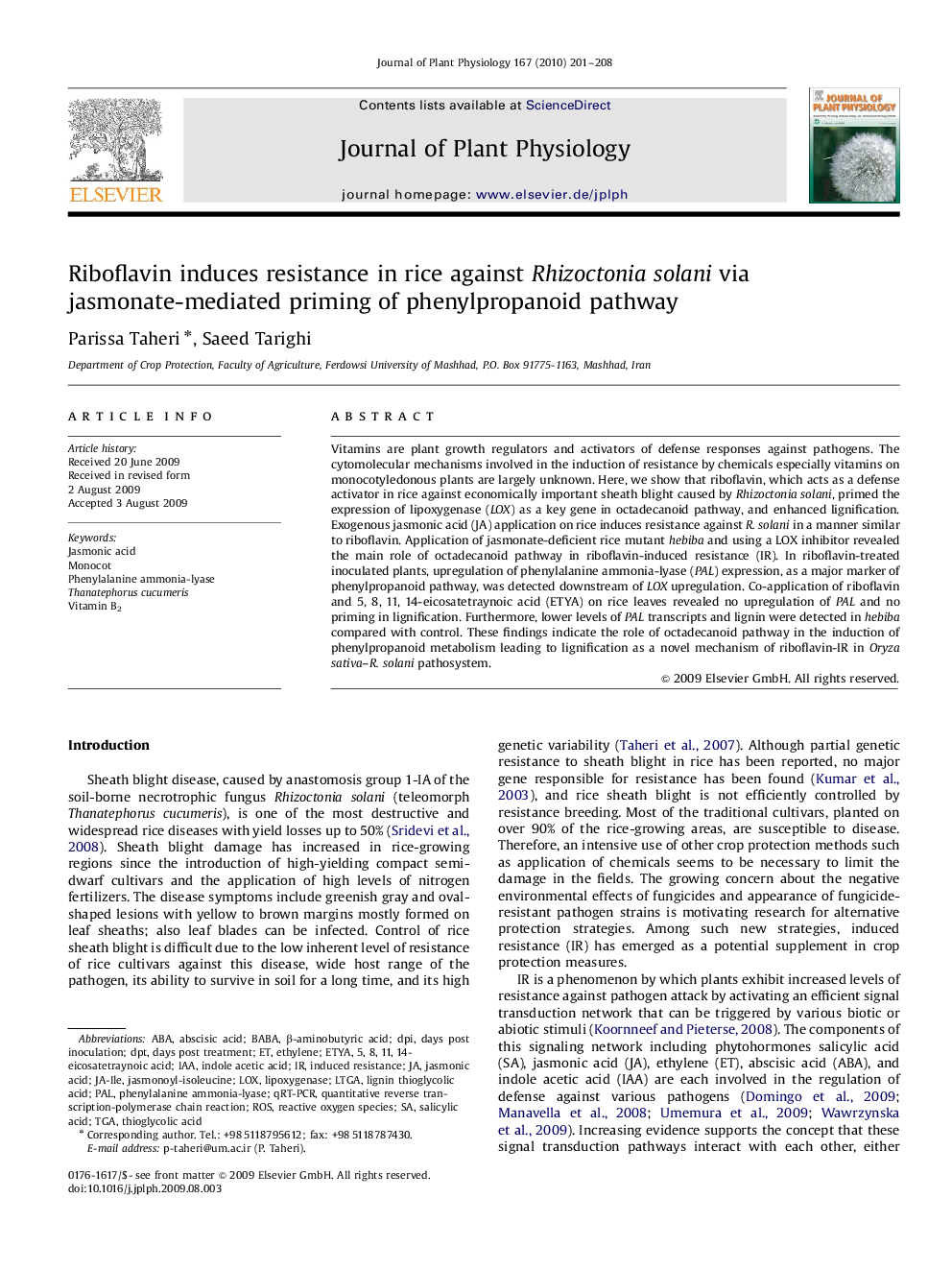| Article ID | Journal | Published Year | Pages | File Type |
|---|---|---|---|---|
| 2057145 | Journal of Plant Physiology | 2010 | 8 Pages |
Vitamins are plant growth regulators and activators of defense responses against pathogens. The cytomolecular mechanisms involved in the induction of resistance by chemicals especially vitamins on monocotyledonous plants are largely unknown. Here, we show that riboflavin, which acts as a defense activator in rice against economically important sheath blight caused by Rhizoctonia solani, primed the expression of lipoxygenase (LOX) as a key gene in octadecanoid pathway, and enhanced lignification. Exogenous jasmonic acid (JA) application on rice induces resistance against R. solani in a manner similar to riboflavin. Application of jasmonate-deficient rice mutant hebiba and using a LOX inhibitor revealed the main role of octadecanoid pathway in riboflavin-induced resistance (IR). In riboflavin-treated inoculated plants, upregulation of phenylalanine ammonia-lyase (PAL) expression, as a major marker of phenylpropanoid pathway, was detected downstream of LOX upregulation. Co-application of riboflavin and 5, 8, 11, 14-eicosatetraynoic acid (ETYA) on rice leaves revealed no upregulation of PAL and no priming in lignification. Furthermore, lower levels of PAL transcripts and lignin were detected in hebiba compared with control. These findings indicate the role of octadecanoid pathway in the induction of phenylpropanoid metabolism leading to lignification as a novel mechanism of riboflavin-IR in Oryza sativa–R. solani pathosystem.
